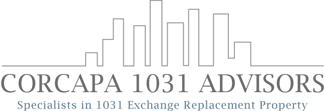From: GlobeSt.com
By: John Salustri
Date: April 30, 2018
Extended growth cycle points to continued hotel sector momentum. New research from Marcus & Millichap offers their outlook for hospitality investors.
CALABASAS, CA– Marcus & Millichap’s newly released North American Hospitality Investment Forecast predicts occupancy and revenue growth in 2018 as the tight labor market, tax reform and increased consumer spending drive demand. According to Pete Nichols, VP and national director of Hospitality for Marcus & Millichap, the improving fundamentals, combined with the cycle’s durability, should bolster investment activity.
“The coming year holds a particularly compelling outlook for hospitality investors,” Nichols highlights. “The extension of this economic cycle and the stimulative influence of the new tax law have the potential to substantively bolster both business and leisure travel. RevPAR has steadily increased over the past eight years, and though the pace of growth for both metrics has flattened, this is largely a factor of being at record levels.”
Nichols tells GlobeSt.com that many investors who bought hotels five to seven year ago have ridden a very strong wave and are well positioned to re-deploy capital into the sector. “Supply growth has been elevated, but robust demand has kept pace in most markets, so investors can still find considerable upside potential.”
Location Will Matter, but There May Be Disconnects
According to the report, supply is expected to rise roughly 2 percent this year, with the development concentrated in the upscale and midscale segments. “The majority of completions are located in larger destination markets, with New York City, Nashville and Dallas/Fort Worth bringing the most rooms online in the coming year.”
The location of hotel properties will play a significant role in investor’s strategies, and Nichols urges both buyers and sellers to maintain realistic pricing and yield expectations. “We continue to see an expectation gap between buyers and sellers, which can be a significant hurdle for both parties,” Nichols indicates. “Some sellers have overly optimistic perception of values, while some buyers may be a bit too cautious.”
As Nichols sees it, investors must be cognizant of the market dynamics as well as the cap rate, room-revenue multiplier and price per key in the local market. “If investors are looking at a hotel in a secondary or tertiary city, they can’t compare the transaction to highly active markets like Nashville or Denver. Additionally, prices per key in a brand tend to vary. An active, knowledgeable broker can help bridge the gap on the metrics, and help investors position their transaction for the best results.”
On long-term returns, Nichols notes, “If your IRR is 25 percent, you’ve made a great return on your investment. Don’t be overly aggressive and price yourself out of consideration.”
Tax Changes and Up-Branding
Beyond occupancy and RevPAR growth, the report states that the new tax policies could also boost investment: “Uncertainty around tax and fiscal policy slowed the pace of transaction velocity in 2017. As clarity on tax reform emerges, sales activity could increase this year amid reduced ambiguity.”Additionally, a variety of bonus depreciation rules have been put in place this year that could significantly benefit yields.“The regulations could prompt some owners to consider smaller hotel assets for value-add potential.”
Nichols describes this as an area of value for investors, particularly for up-branding. “Whether that up-branding is from a Holiday Inn Express to an Even Hotel or from a Choice to a Hampton Inn, the up-branding of properties could offer significant opportunity.”
Overall, Nichols tempers his optimistism with a modest level of caution. “Investors need to be tactical in their decisions, considering the dynamics of the local market and the key drivers supporting hotel demand. Just because the overall economy remains robust, that doesn’t mean there are no local pockets facing downside risk. The market has been strong and investors are recognizing value, but as always, a disciplined approach with a systemized diligence process remains an important safeguard for investors.”
Read Full Article: http://www.globest.com/2018/04/30/hotels-to-stay-positive-as-tax-law-bolsters-economic-growth
Contact Us for More Information
"*" indicates required fields



